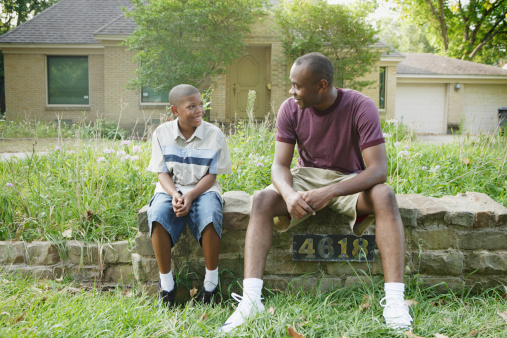
A spate of recent incidents in the national spotlight has drawn new attention to how we, as a society, prepare boys to become men. While there are numerous applications of identity and character development, some of the most important revolve around relationships, sexuality and sexual behavior.
Earlier onset of puberty for boys (and girls) only accelerates the need to communicate with them about impending change and how to harness, process, understand and actualize complicated biological and psychological forces.
And it is at that intersection where boys, in particular, too often get shortchanged.
As children of both sexes move through puberty and into their adolescence, hormones surge, bringing about well-known physical manifestations of maturity, such as increases in height and weight, emerging pubic hair and growing genitalia, first menstruation for girls and first ejaculation for boys.
But supercharged doses of hormones influence more than just physicality – they also engender changes in mood and emotion. During this time a massive reorganization of the brain ensues. Sleep cycles switch, making teens more nocturnal. Cognitive advancement to what is known as formal operational thought makes them more inclined to think abstractly. Thus, teens are better able to see the nuances of a host of life situations, including, perhaps, their first “romantic” relationships with members of the opposite, or same, sex (or both).
Puberty and adolescence are confusing times not only for boys but also increasingly for their parents and other caregivers.
While earlier puberty in girls (defined as beginning of breast development) has been acknowledged for years, in 2012 the narrative began to shift with new research from the American Academy of Pediatrics revealing that American boys are showing signs of puberty 6 months to 2 years earlier than boys did 30 to 40 years ago. In that study, puberty was defined as genital and pubic hair growth and early testicular development, which on average was age 10 for white and Hispanic boys and about 9 for black boys.
With boys already struggling to make sense of dramatic changes to their bodies, emotions and relationships, earlier starts of puberty have raised many questions about prepping them for this transition.
How children experience puberty, or at least elements of it, varies for both boys and girls. For example, some girls report feeling excited about their first period, while others report apprehension.
Most at least seem prepared.
On the other side of the aisle, some boys talk about a nocturnal emission (“wet dream”) as an accomplishment and others not so much. Thirteen-year-old Brad pumped his fist and said triumphantly, “Yes, finally!” while 12-year-old Jim said his made him feel dirty.
Significantly, and more so than girls, boys seem to receive little, if any, advance warning from their parents about pubertal changes, let alone nuanced conversation about the meaning of personal and physical development. In his book Challenging Casanova (Smiler, 2012), psychologist Andrew Smiler shares that while first menstruation is generally talked about by parents, first ejaculations usually aren’t because they are equated more with sex than with physical maturation.
One thing is clear: earlier sexual development may lead to earlier sexual behavior or perceived pressure to engage sexually.
However, it is encouraging to note that parents who talk with boys about sex make a difference. Here are some conversation starters they might try.
• During adolescence it seems like everything is different, from how we interact with friends to what’s happening to our bodies.
• Many boys wonder what to do with sexual feelings, as well as when it is the right time to become sexually active with someone else. What do you think is right for you?
• Sometimes boys can feel pressure to engage in sexual behavior before they feel they are ready. Do you know someone who has had to deal with that?
• It’s important to know that you are in charge of your body and what to do with it! Whatever decisions you make, they should be decisions you want to make.
• There can be a lot at stake when it comes to sex, and one decision can have long-term or even lasting consequences. What do you think some of those might be?
• Some boys confuse sexuality with sex. Sexuality is an important part of identity formation and helps us learn “who we are.” But that doesn’t mean having to have sex.
• Maybe you and I, together, can try to figure out when you feel you are old enough, and mature enough, to engage in sexual behavior.
As boys hurtle toward physical maturity, and the choices that may prompt, they benefit from adult guidance to slow down and consider emotional maturity and what it takes to transition from being a boy to being a man.



























